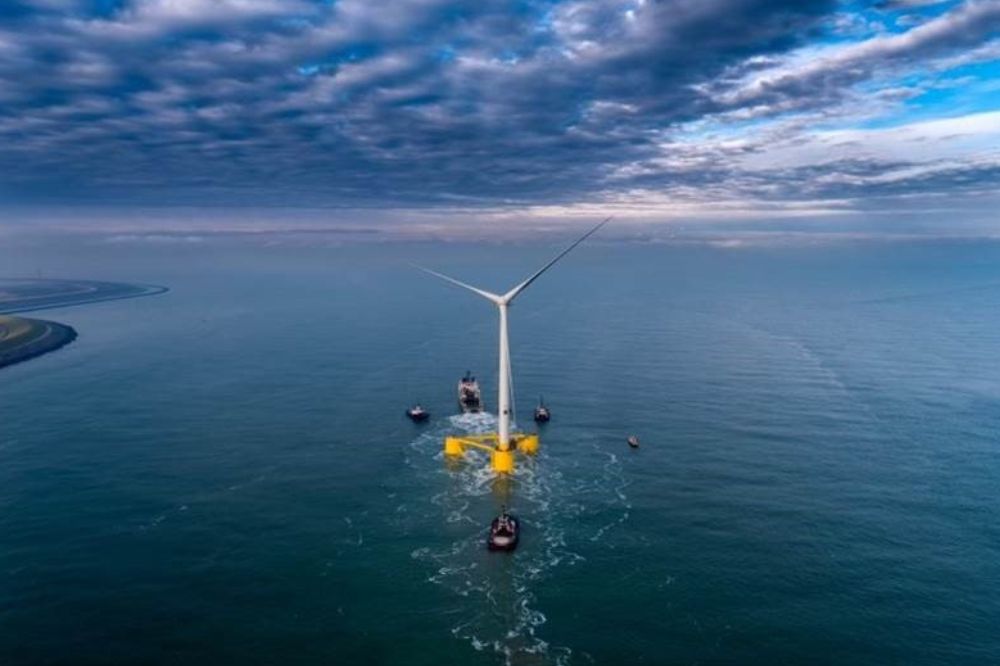Bangor University to research environmental impact of floating wind farms

Researchers at Bangor University have received funding to investigate what environmental impacts the proposed development of a new generation of floating wind farms might have on the marine environment.
The university’s renowned School of Ocean Sciences are part of a major UK consortium which has won £2.5 million in funding from the Natural Environment Research Council, one of the main bodies which funds UK research.
£639,000 has been earmarked for Bangor University to carry out research into the impact of different turbine foundation designs on sensitive ecosystems.
Following the success of the development of offshore wind as a renewable energy source over the past decade, a further fourfold expansion in this form of energy capture is seen as the backbone to the UK pathway to achieving NetZero by 2050.
Whilst over 99% of current generation of UK offshore wind farm development is based in shallow tidally turbulent and well mixed coastal seas, the proposed massive expansion requires large scale developments in the deeper seas further from shore, as is already planned in the North and Celtic Seas.
These deeper waters have distinct temperature layers which change through the seasons and support different ecosystems, fish and other species.
Post-doctoral Research Fellow, Dr Ben Lincoln said: “This shift to deeper waters requires the development of radically different turbine foundation designs, with a switch from the current generation of seabed fixed turbines to novel floating platforms.
“This raises questions about what impacts these new developments may have on nature and the environment.”
The shelf seas are considered some of the most biologically productive seas on the planet.
The new research will examine the impacts of the new developments on these sensitive ecosystems, and in particular the turbulent wakes associated with tidal flow past the floats, and the associated mixing between waters of different temperatures and salinity.
These developments could produce some positive aspects on the marine ecosystem, such as counteracting some of the impacts of a warming ocean.
Fisheries
It is hoped that the new research will guide design and planning of these vital new developments to ensure they are sustainable in protecting local wildlife.
Beyond protecting wildlife, these new developments could also help to generate new fisheries, as proposed in a paper by Bangor University Ocean Sciences scientists John Simpson and Paul Tett 36 years ago.
Ben Lincoln added: “Floating offshore wind provides a huge opportunity for the UK in reaching NetZero, and in creating jobs. Over 50 years of novel research here at the School of Ocean Sciences shows us that that optimising float design and wind farm layout could help mitigate against the negative impacts of climate change, as well helping grow new sustainable fisheries in these regions.
“We hope that our planned research will help to ensure the maximum positive impacts and sustainability of these developments.”
Support our Nation today
For the price of a cup of coffee a month you can help us create an independent, not-for-profit, national news service for the people of Wales, by the people of Wales.






